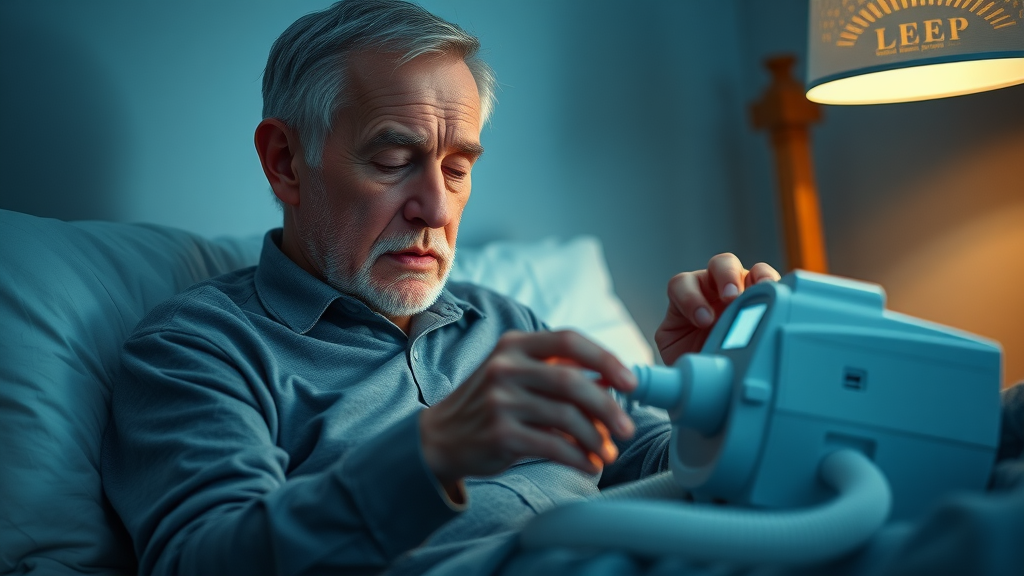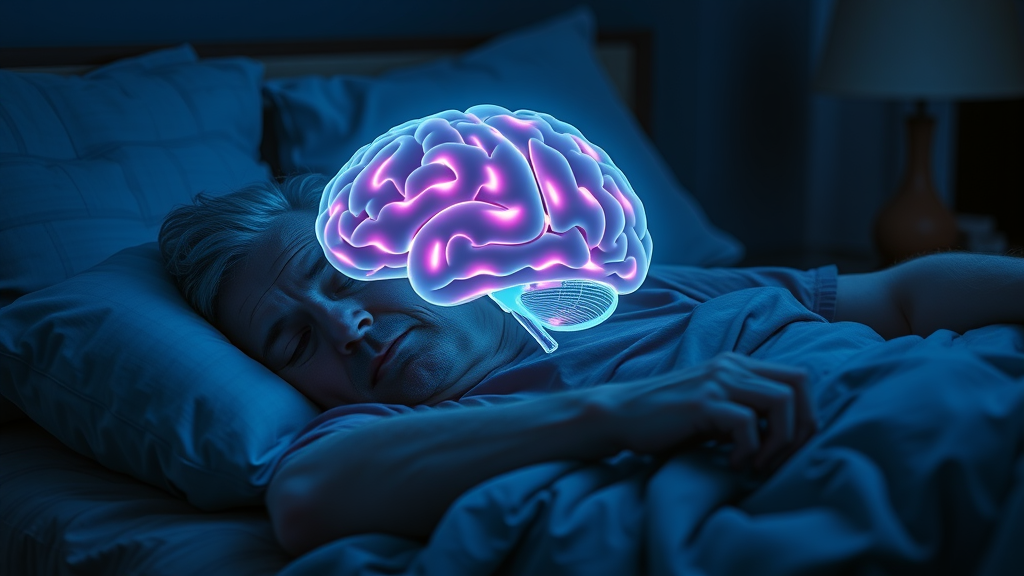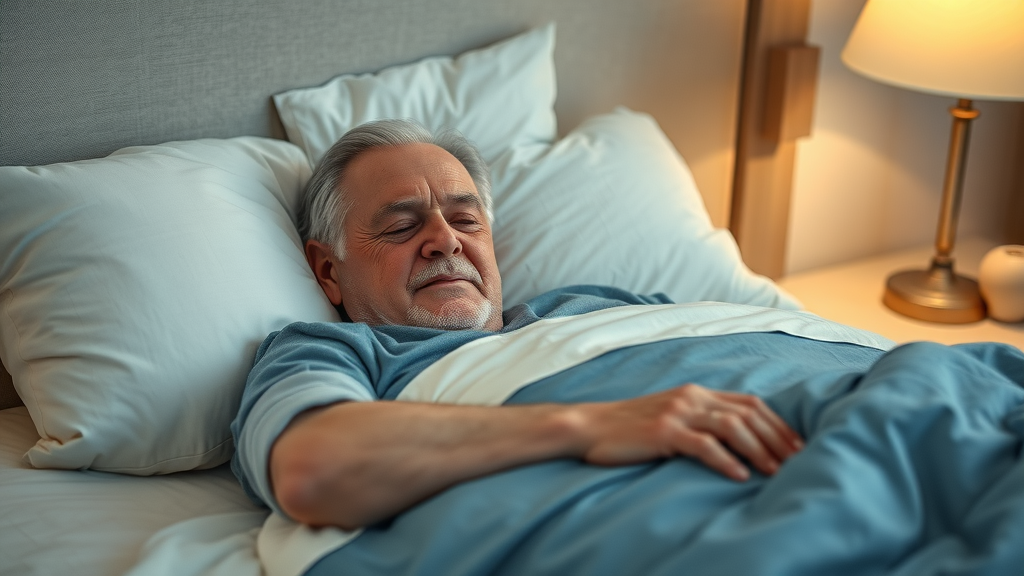Did you know nearly 50% of seniors experience sleep issues that worsen mental health? Improving sleep habits can dramatically enhance mood, memory, and overall wellness. Discover proven strategies to boost mental wellbeing and sleep quality, helping seniors live healthier, happier lives starting today. This comprehensive guide covers practical advice, real-life testimonials, and expert tips to help older adults – and those who care for them – thrive through better sleep and improved mental health.

Unlocking the Connection Between Senior Mental Health and Sleep Quality
Senior mental health and sleep are more connected than many realize. As adults age, the risk for both sleep problems and mental health struggles increases due to physical health changes, medications, and shifts in routine. In fact, poor sleep isn’t just an inconvenience: it’s a primary driver of depression, anxiety, and cognitive decline among older adults worldwide. Addressing these issues is crucial not only for boosting quality of life, but also for facilitating independence and long-term wellness.
Recent studies show that when sleep quality improves, so does mental health among older adults. The benefits are broad—better mood, sharper memory, improved heart health, and greater physical vitality. On the flip side, ongoing sleep problems can degrade emotional stability and brain function, making daily tasks and social interaction harder. Let’s explore why tackling poor sleep in seniors is so important and how it’s powerfully linked to emotional and mental wellbeing.
Why Addressing Poor Sleep in Older Adults Matters for Mental Health
- Nearly half of older adults face sleep issues
- Sleep deprivation fuels common mental health problems
- Improved sleep quality supports brain health and mood

Poor sleep in older adults often results from new or worsening health problems , such as heart disease, chronic pain, or medication side effects. These disruptions lead to fragmented sleep, making recovery and daily life harder. Addressing these issues, whether through behavioral therapy, physical health improvements, or environment changes, is essential for maintaining both mental health and a strong quality of life.
The Impact of Sleep Quality on Senior Mental Health and Daily Function
"Quality sleep is foundational for cognitive vitality and emotional balance in older adults." — Dr. Jane Meadows, Geriatric Psychiatrist
Good sleep quality helps older people process emotions, solidify memories, and manage daily tasks with confidence. When sleep is disrupted—due to sleep apnea, insomnia, or chronic pain—brain health and mood can decline rapidly. Seniors struggling with poor sleep may become more irritable, forgetful, or withdrawn, making them vulnerable to isolation and greater mental health challenges.
Furthermore, consistent poor sleep adversely affects daytime energy , aggravates chronic illnesses, and impairs recovery from health setbacks. Healthy sleep habits therefore deliver both mental and physical benefits, helping seniors enjoy a fuller, more independent life.
What You'll Learn: Enhancing Senior Mental Health and Sleep
In this guide, you’ll learn how to recognize the signs of declining senior mental health , understand the different sleep disorders that affect older people, and discover practical ways to improve sleep quality . With actionable steps for seniors, caregivers, and families, you’ll be equipped to transform both mental wellbeing and sleep patterns.
- Recognize signs of mental health decline in seniors
- Understand how sleep disorders affect older people
- Practical steps to elevate sleep quality
- Lifestyle adjustments for better mental wellbeing
- Strategies for caregivers and families
Recognizing Signs of Poor Sleep and Mental Health Problems in Older Adults

Early recognition of symptoms is key to addressing both poor sleep and declining mental health in seniors. While issues like depression and anxiety are common, other mental health concerns—such as cognitive decline or increased irritability—can be less obvious but equally disruptive. Often, these issues develop in tandem with sleep disorders, creating a cycle that's hard to break without intervention.
Loved ones and caregivers should look for signs such as frequent mood swings, changes in sleep-wake patterns, withdrawals from social activities, and an increase in forgetfulness. Proactively spotting these signs ensures timely intervention, preventing small problems from becoming bigger health challenges.
Common Mental Health Issues in Seniors: Beyond Depression and Anxiety
- Depression, anxiety, and cognitive decline
- Sleep disorders like insomnia and restless leg syndrome
- Isolation and loneliness aggravating poor sleep
- Mood swings or irritability
- Loss of interest in daily activities
- Increased forgetfulness
- Frequent napping during the day
- Difficulty falling or staying asleep
Older adults may experience unique mental health challenges such as heightened anxiety, difficulties with memory, or reduced motivation. These issues can also be linked to sleep disorders—like insomnia, sleep apnea, or restless legs syndrome—which compound feelings of frustration and fatigue. Social isolation, particularly for seniors living alone, tends to worsen both sleep and mental wellbeing.
Spotting Depressive Symptoms and Their Relationship to Sleep Quality
"Depressive symptoms often manifest as disruptions to the circadian rhythm, making restful sleep elusive for many seniors." — Dr. Alan Pierce, Sleep Researcher
Depressive symptoms in seniors often look different than in younger adults, manifesting as persistent tiredness, disrupted sleep, and loss of interest in favorite activities. Disruptions to the circadian rhythm —the body’s internal clock—can make falling and staying asleep more difficult, resulting in a cycle of emotional and physical fatigue. Poor sleep exacerbates feelings of sadness and slows recovery from mental health setbacks.
Over time, sleep deprivation can trigger or worsen depression, anxiety, and even lead to the onset of dementia-related problems. Recognizing how closely sleep quality and mental health are intertwined is the first step toward breaking the cycle and guiding seniors back to health.
Understanding Poor Sleep: Causes and Consequences in Senior Mental Health
Poor sleep quality is not just a normal part of aging. Frequently, underlying conditions disrupt restful sleep in older adults. Identifying the causes—be it physical illness, side effects from medications, or a disruption of the circadian rhythm —helps target solutions that restore both sleep and emotional balance.
If sleep disorders go unaddressed, the result can be chronic sleep deprivation, which undermines mental health , increases risk of falls or accidents, and diminishes quality of life. Seniors with untreated sleep apnea, for example, may face more intense mood swings, memory loss, and deteriorating cognitive function.
Sleep Disorders Among Older Adults: Insomnia, Sleep Apnea, and More
- Prevalence of insomnia in older adults
- Sleep apnea and its impact on physical and mental health
- Restless legs and other sleep disorders reducing sleep quality

Insomnia remains the most common sleep disorder among seniors, but conditions like sleep apnea and restless legs syndrome are equally disruptive. Insomnia can stem from anxiety, depression, chronic pain, or even poor “sleep hygiene” (like irregular bedtimes and excessive screen use). Sleep apnea , marked by repeated pauses in breathing, is especially worrisome, as it is tightly linked to heart disease, cognitive decline, and mood swings in older adults.
Restless legs syndrome presents as uncomfortable sensations in the legs, often making sleep elusive. These issues are not only frustrating but can lead to a spiral of sleep deprivation , daytime fatigue, and increased risk of mental health decline. Addressing these sleep problems early is essential for long-term wellbeing.
How Circadian Rhythm Changes Affect Sleep Quality in Seniors
- Earlier bedtimes and wake times
- Difficulty staying asleep through the night
- Light sleep stages dominating nighttime rest

As people age, their circadian rhythm shifts, causing earlier bedtimes and wake times. Unfortunately, these changes can make it harder to get the deep, restorative sleep that seniors need for vibrant health. Many older adults report waking up more throughout the night and spending less time in restorative deep sleep stages.
Light exposure is key to resetting the circadian rhythm . Seniors who don’t get enough natural sunlight during the day often struggle with sleeplessness at night. Simple adjustments such as embracing morning sunlight, limiting blue light from screens in the evening, and keeping bedtime routines consistent can help seniors realign their sleep cycles for better mental health.
Sleep Disorders and Their Effect on Senior Mental Health
| Disorder | Symptoms | Effect on Mental Health |
|---|---|---|
| Insomnia | Trouble falling/staying asleep | Increases risk of depression |
| Sleep apnea | Pauses in breathing, snoring | Cognitive decline, mood swings |
| Restless leg syndrome | Uncomfortable leg sensations | Anxiety, irritability |
Each sleep disorder can have a profound impact on senior mental health . For example, seniors with insomnia may develop depressive symptoms , while those with untreated sleep apnea are at increased risk for memory loss, confusion, and mood disturbances. Recognizing and managing these sleep problems is essential for fostering emotional resilience in older adults.
Effective interventions often combine sleep med management, behavioral therapy, and environmental changes. With the right support, older adults can experience significant improvements in both sleep quality and mental wellbeing.
Practical Steps: How to Improve Senior Mental Health and Sleep Quality
Improving senior mental health and sleep quality doesn’t require drastic changes—small, consistent steps can produce big results. By incorporating healthy sleep habits, lifestyle adjustments, and regular health monitoring into daily routines, seniors and their caregivers can create an environment that supports restful nights and brighter days.
It's also vital to address underlying health problems and consult healthcare professionals for chronic sleep disorders like sleep apnea or persistent insomnia. Let’s break down the most effective strategies.
Building Healthy Sleep Habits for Older Adults
- Consistent sleep-wake schedules
- Limiting naps to 20-30 minutes in early afternoon
- Creating relaxing bedtime routines

Encouraging a regular sleep and wake schedule helps align the circadian rhythm and improves overall sleep quality . Limiting naps—especially late in the day—prevents night-time insomnia. Engaging in calming bedtime rituals such as light reading, gentle stretching, or listening to soft music can signal to the body that it’s time for rest, easing the transition to sleep.
Avoiding caffeine and limiting screen time before bed are also crucial. Creating a cool, dark, and quiet bedroom environment can help minimize disruptions. These simple steps, practiced daily, lay the foundation for better mental health and physical recovery in older adults.
Supporting Mental Health Through Lifestyle Changes
- Regular gentle exercise
- Social engagement and activities
- Nutritious meal planning
Lifestyle factors play a significant role in maintaining robust senior mental health . Gentle activities such as walking, stretching, or yoga not only foster deeper sleep but also reduce stress and anxiety. Staying socially active—through clubs, volunteering, or regular family visits—combats loneliness and gives seniors a sense of purpose.
Nutrition should not be overlooked. Balanced, nutrient-rich meals stabilize mood and can help seniors maintain energy. Limiting processed sugar, caffeine, and heavy evening meals is a straightforward way to support better sleep quality and brain health.
The Role of Sunlight and Circadian Rhythm Adjustment
- Encourage morning sunlight exposure
- Limit blue light from screens before bed
- Aligning daily routines with natural light patterns
Natural sunlight is vital for synchronizing the body’s sleep-wake cycle. Seniors exposed to natural daylight in the morning find it easier to fall—and stay—asleep at night. Blue light from TVs, smartphones, and tablets in the evening, on the other hand, suppresses melatonin and disrupts the circadian rhythm .
Simple actions, such as opening curtains in the morning and turning off screens an hour before bed, help maintain healthy circadian timing. These steps are not only beneficial for sleep quality but also for mood and overall cognitive function in older adults.
Addressing Health Problems Linked to Poor Sleep in Older Adults
- Regular health screenings
- Managing chronic conditions like hypertension or diabetes
- Consulting professionals for sleep issues
Sleep disturbances are often a sign of underlying medical conditions. Regular check-ups help catch problems early, including issues like high blood pressure or diabetes, which can interfere with sleep. Seniors with chronic pain or breathing difficulties should work closely with healthcare providers to adjust treatments and minimize side effects impacting sleep med routines.
Consulting a sleep specialist for persistent sleep disorders ensures that seniors get the targeted help they need. Timely intervention can prevent complications and dramatically improve sleep quality and mental health .
Visual Guide: Simple Relaxation Exercises Before Bed for Older Adults
Video Demonstration: Top 3 relaxation techniques for improving sleep quality in seniors
The Relationship Between Sleep and Mental Health Disorders in Older People
The relationship between sleep and mental health disorders is well established. Sleep disorders can trigger or accelerate mental illnesses, while many psychological conditions make restful sleep much harder. For seniors, chronic poor sleep is a major risk factor for depression, anxiety, and cognitive impairment.
The good news? Addressing one issue often helps the other. For example, treating sleep apnea with a CPAP device can alleviate depressive symptoms, and managing anxiety can help restore a healthy sleep routine.
How Sleep Disorders Can Trigger Mental Health Issues in Older Adults
- Insomnia exacerbating depressive symptoms
- Sleep apnea contributing to anxiety disorders
- Chronic poor sleep elevating dementia risk

Insomnia and sleep apnea both elevate the risk for mental health problems in older adults. Episodes of poor sleep can leave seniors feeling hopeless, anxious, or unable to concentrate. Over time, this increases the risk for serious mental health disorders, including dementia and severe depression. Early identification and professional treatment can help break the cycle and restore hope.
Both sleep problems and mental health conditions are treatable, especially when caregivers and loved ones work together to monitor changes and support positive habits.
Mental Illnesses That Disrupt Sleep Quality
- Depression
- Anxiety
- Bipolar disorder
- Dementia
Several mental illnesses cause sleep disturbance , creating a feedback loop that can worsen overall health. Depression is particularly known for causing either insomnia or oversleeping, while anxiety keeps the brain in a state of alert, making it nearly impossible to relax and get adequate rest.
Disorders like dementia and bipolar disorder also disrupt the body’s natural sleep-wake cycles, contributing to poor sleep and daily confusion or instability. Recognizing these links is instrumental in developing comprehensive support plans for older adults.
Senior Testimonials: Thriving After Addressing Sleep and Mental Health
Proven Strategies for Caregivers: Supporting Senior Mental Health and Sleep
Family members and caregivers play a vital role in safeguarding senior mental health and sleep quality . By staying informed and proactive, they can help older adults maintain routines, manage medications safely, and foster environments conducive to restful nights and uplifting days.
Practical support ensures early detection of problems and helps seniors feel connected rather than isolated, significantly reducing mental health struggles and sleep difficulties.
Practical Tips for Families of Older Adults
- Encourage regular check-ups
- Monitor medications and side effects
- Foster open communication on mood and sleep

Schedule frequent health appointments, as regular monitoring helps detect emerging issues before they worsen. Always track what medicines are being used, and watch for new or worsening side effects that affect sleep or mood. Families who talk openly with seniors about their mental health and sleep tend to recognize issues early and seek help faster.
Support seniors by creating a judgment-free environment where concerns are shared and addressed with compassion. This approach fosters trust, reduces stigma, and empowers older adults to participate in their own wellness journey.
Communication Tips for Detecting Mental Health Problems in Seniors
- Ask about sleep quality regularly
- Observe changes in behavior
- Offer reassurance and support
Keeping the conversation open and positive is essential when discussing sensitive issues. Regularly asking about sleep quality and mood lets seniors know their wellbeing matters. Observing changes—like sudden withdrawal or agitation—can signal deeper issues that require professional support.
Always provide reassurance that mental health challenges and poor sleep are normal and treatable with the right strategies. Building this foundation of trust ensures timely intervention and better long-term outcomes.
Maintaining Sleep Quality Amid Health Changes in Older Adults
As medical conditions evolve, it’s important for seniors to find new ways to maintain strong sleep routines. Adapting habits and using interventions such as CPAP machines for sleep apnea can preserve both sleep quality and emotional health.
Staying flexible—focusing on pain relief, relaxation methods, and personalized sleep environments—can help seniors adjust to health problems without sacrificing rest.
Managing Sleep Apnea and Other Sleep Disorders for Better Mental Health
- Using CPAP or other prescribed devices
- Consulting sleep specialists
- Adjusting bedroom conditions for comfort
For seniors with sleep apnea , using a CPAP device as prescribed can drastically improve sleep and boost overall mood and cognition. Regular appointments with sleep medicine specialists ensure that devices are fitted and operating properly. Adjusting bedroom temperature, lighting, and bedding improves both comfort and safety, contributing to deep, uninterrupted sleep.
Seeking professional help also allows seniors to try new therapies—such as cognitive behavioral therapy for insomnia—that may be more effective than sleep med or quick fixes. Targeted approaches reduce daytime fatigue, irritability, and memory problems, enabling seniors to stay active and engaged.
Adapting to Health Problems Without Sacrificing Sleep
- Pain management strategies
- Mindfulness and relaxation practices
- Customizing sleep routines based on needs

Unmanaged pain or chronic illness often stands in the way of restful sleep. Techniques such as guided imagery, progressive muscle relaxation, and mindfulness meditation can calm the body and reduce nighttime stress. Taking pain medication as prescribed and using pillows or blankets for additional support also make a big difference.
Each senior’s needs are unique. Tailoring sleep routines, experimenting with bedtime activities, and adjusting health interventions as needed offers hope for maintaining good sleep quality even as new health problems arise.
Video Guide: Step-by-step prep for doctor visits to discuss mental health and sleep disorders
People Also Ask
What are the signs of poor mental health in the elderly?

Signs of poor mental health in elderly adults include persistent sadness, loss of interest in favorite activities, excessive worries, changes in appetite, sleep disturbances, increased forgetfulness, and withdrawal from social interactions. Other symptoms might be mood swings, irritability, or unexplained aches and pains. Recognizing these signs early can make a big difference in seeking help and improving both mental and physical health.
What is the most common mental disorder among seniors over age 65?
The most common mental disorder among seniors over age 65 is depression. It often coexists with anxiety or cognitive decline and can be triggered by chronic illness, pain, or significant life changes such as loss of independence. Depression frequently interacts with poor sleep , forming a cycle that impairs both mental and physical wellbeing.
Why do senior citizens have a hard time sleeping?
Senior citizens often have trouble sleeping due to changes in their circadian rhythm , increased sensitivity to disruptions, medication side effects, or underlying health conditions such as sleep apnea, restless legs syndrome, or heart disease. Stress, loneliness, and anxiety may also contribute, making it important to address all possible causes for a holistic improvement in sleep quality.
What mental illness makes it hard to sleep?
Several mental illnesses disrupt sleep, including depression, anxiety disorders, bipolar disorder, and dementia. These conditions often alter the body’s natural sleep cycle, leading to insomnia, fragmented sleep, or excessive daytime sleepiness. Seeking treatment for the underlying mental health problem can often improve sleep quality in older adults.
Frequently Asked Questions on Senior Mental Health and Sleep
-
How much sleep do older adults need?
Most older adults need 7 to 8 hours of sleep each night. Getting less than this can lead to fatigue, mood changes, and decreased cognitive function. Some may need slightly more or less depending on individual health conditions. -
Are naps helpful or harmful for senior sleep quality?
Short naps (20–30 minutes) in the early afternoon can boost alertness in older adults without disrupting nighttime sleep. Longer or late-day naps may, however, worsen insomnia. Maintain a regular sleep-wake cycle for best results. -
Can exercise improve both mental health and sleep?
Absolutely—gentle exercise, such as walking or yoga, is proven to improve both sleep and mood for seniors. Aim for at least 30 minutes of activity most days for maximum benefit. -
What dietary changes support senior sleep?
A balanced diet rich in whole grains, lean proteins, fruits, and vegetables supports good sleep. Limiting caffeine, especially in the afternoon and evening, and avoiding heavy late-night meals can also significantly improve sleep quality.
Take the Next Step for Enhanced Senior Mental Health and Sleep
"Better sleep and mental health go hand-in-hand — start with simple changes today to transform tomorrow."
For those interested in actionable, everyday approaches to support emotional wellbeing, you may find it helpful to explore practical techniques for enhancing mental wellness in seniors . These methods can complement sleep improvement strategies and foster a more holistic sense of health.
As you continue your journey toward better sleep and mental health, consider how other aspects of wellness can further enrich your life or the life of a loved one. Building strength and resilience—both mentally and physically—can have a profound impact on longevity and independence. If you're curious about how simple changes, like improving grip strength, can support overall health and vitality, discover more in our guide on the connection between grip strength and healthy aging . Every step you take toward wellness opens new doors to thriving at any age.
Enhancing senior mental health and sleep quality is vital for overall well-being. Dr. Gary Small, a geriatric psychiatrist, emphasizes the importance of sleep in promoting healthy aging. In his article, “ 5 sleep habits that will help you live longer, according to a longevity expert ,” he outlines five key sleep habits that can extend life expectancy and improve cognitive functions. Additionally, the article “ ‘A Rinsing of the Brain.’ New Research Shows How Sleep Could Ward Off Alzheimer’s Disease ” discusses recent research revealing how quality sleep facilitates the brain’s cleansing processes, potentially reducing the risk of Alzheimer’s disease. Implementing these strategies can significantly enhance mental health and sleep quality in older adults.
 Add Element
Add Element  Add Row
Add Row 




Write A Comment